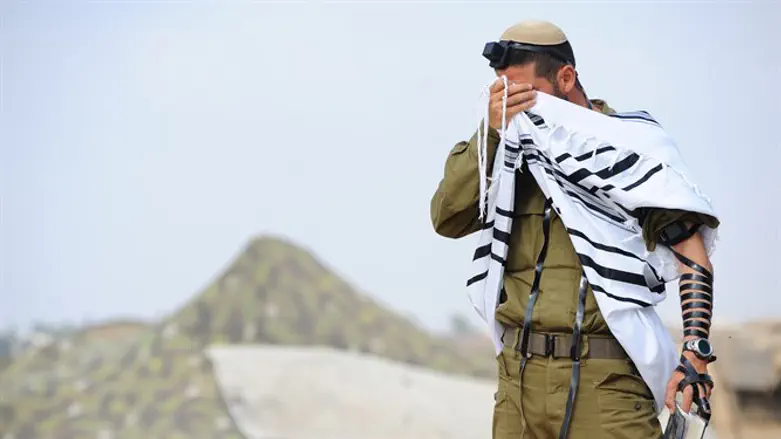
We religious Zionist folks,like every other Israeli soldier, love telling army stories. Everyone has his own army story to tell, and with your permission, I will honor this tradition here and now.
At some point during my mandatory military service, I and several other soldiers were sent from our base to another, small base. Three of us were religious and the rest – secular. Once we arrived, we realized that the kitchen was not kosher. There was no doubt about it.
We did what naïve religious soldiers do in such situations. We called our company commander, vowed that we would not set foot in the dining room until it had been made kosher by a certified representative of the Military Rabbinate, whose job itis to see that the IDF kitchens are kosher, and asked him to supply us with an alternative food source. We were very surprised when he commanded us: "Go into the dining room and eat. We will take care of the kashrut problems tomorrow".
Despite the shock, it only took me a few seconds to tell him – as our representative in that phone conversation – "No, it won't happen. We will not set foot in a non-kosher dining room."
Now it was his turn to be shocked. "Are you refusing an order? If you do not enter the dining room, I will court martial you," he threatened.
"I am not refusing anything," I replied. "But I will not go into the dining room, even if you decide to court martial me and my comrades."
It was not easy, but it was very clear to us. An order that contravenes halakha must not be followed, and if the price to pay is a military trial and punishment, so be it. Halakha comes first. The end of the story, by the way, was that we received combat rations that very evening, the kitchen was made kosher the next day, thanks to us, and the threat of a court martial was not mentioned again.
Why am I returning to this story, other than nostalgia? The reason, of course, is the unbearable idea of placing female soldiers in the IDF's armor and infantry units. This new reality will likely not harm religious units like the haredi Netzach Yehuda battalion, but many religious combat soldiers may well find themselves having to serve alongside women in situations where they cannot observe halakha. The response to such a demand must be clear and decisive: No.
There is a wall-to-wall rabbinic consensus, from the haredi end of the spectrum to the more liberal one, that halakha cannot be maintained in a combat situation involving men and women. It is impossible. And that is why it must be clear and unquestionable, that a religious soldier must refuse to serve in such a unit. It the price he pays involves being stationed in a less challenging and interesting unit, so be it. If the price is jail – so be it. Just as the decision we made in the story I told is something that goes virtually without saying for most religious soldiers, so is this decision.
This is not like the problem with the beards the army wanted shaved. This is not something that is in dispute, and it is not a question of minhag, or custom. There needs to be a solid wall here, going through the entire religious public, from the rabbinic to the political leadership, from the heads of the educational establishment down to the last soldiers. This will not happen, no way, no how.
